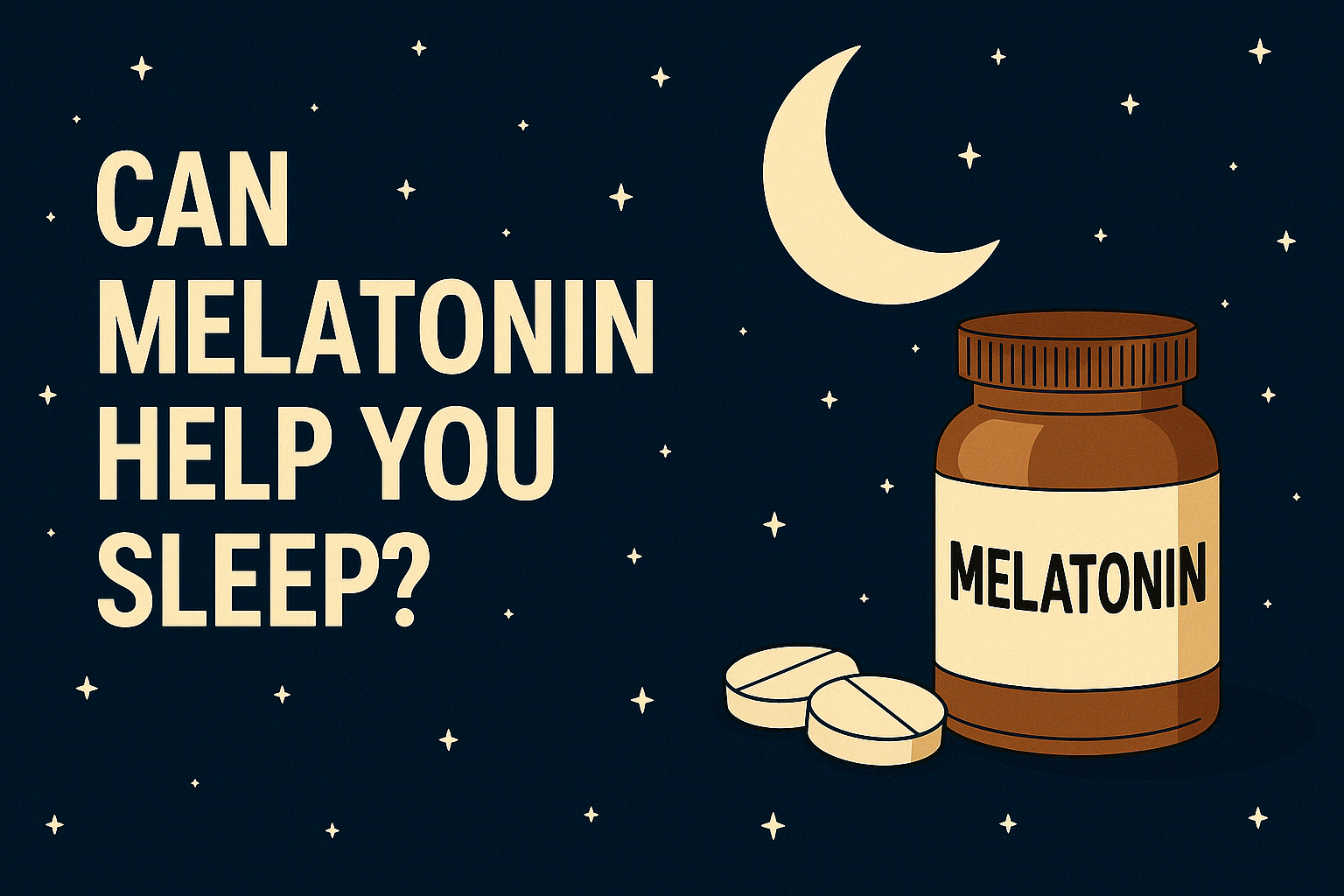Tired of tossing and turning? You may have heard about melatonin for sleep, but is it the right option for you?
Whether you’re struggling with jet lag, shift work, or just can’t fall asleep at a reasonable hour, melatonin is often recommended as a natural solution. But there’s a lot of confusion, especially in the UK, about what it is, how to take it, and whether it’s even legal.
Let’s cut through the nonsense and look at the facts.
🌙 What Is Melatonin for Sleep?
Melatonin is a hormone your body naturally produces to help regulate your sleep-wake cycle. Levels rise in the evening when it’s dark, telling your brain it’s time to wind down.
Factors like age, artificial light (screens), stress, and travel can all disrupt melatonin production — leaving you wide awake when you should be dozing off.
🧪 How Does Melatonin Work?
Melatonin doesn’t knock you out like a sleeping pill — it simply signals to your body that it’s time for sleep. Think of it as your internal bedtime reminder.
Taking melatonin for sleep may help if:
- You have trouble falling asleep
- You wake up too early
- You’re dealing with jet lag or shift work
- You’re over 50 and your body produces less melatonin naturally
🧓 Does Melatonin Production Decrease with Age?
Yes — studies show melatonin levels significantly decline as we age, which may be why older adults often struggle with sleep. This makes melatonin for sleep one of the most science-backed supplements for age-related sleep issues.
🇬🇧 Can You Buy Melatonin in the UK?
Here’s where it gets tricky. In the UK, melatonin is classified as a prescription-only medicine, unlike in the US or many European countries where it’s sold over the counter.
That means you can’t legally buy pure melatonin supplements unless they’re prescribed by your doctor — usually in a form like Circadin for insomnia in over-55s.
However, many UK users still:
- Get it prescribed
- Travel with US/European supplements
- Use melatonin-free sleep aids that support the same pathway (like magnesium, L-theanine, or ashwagandha)
💊 Ideal Melatonin Dosage (Less Is More)
Most people think more is better — but when it comes to melatonin for sleep, small doses are more effective:
- Start with 0.3 to 1 mg 30–60 minutes before bed
- Higher doses (3–5 mg) can be too strong, lead to grogginess, or even backfire
Always start low and only increase if needed — more isn’t always better.
🛑 Side Effects and Cautions
Melatonin is generally considered safe short-term, but some people may experience:
- Grogginess in the morning
- Vivid dreams or nightmares
- Headaches
- Hormone sensitivity (especially in women)
It may also interact with medications like blood thinners or antidepressants — so always check with your GP.
🌿 Natural Alternatives to Melatonin in the UK
Can’t get melatonin? Don’t worry — several natural supplements support your body’s sleep-wake cycle without needing a prescription:
- Magnesium – Calms nerves and muscles
- L-Theanine – Encourages relaxation without sedation
- Ashwagandha – Reduces cortisol and stress
- Glycine – Lowers body temp to support sleep
Learn more from the Sleep Foundation.
✅ Final Thoughts
Melatonin can be a helpful tool for resetting your internal clock — especially if your sleep schedule is off or your body isn’t making enough naturally. Just know that in the UK, it’s not sold over the counter, and smaller doses are usually best.
If melatonin isn’t available or suitable for you, don’t worry — there are plenty of effective natural alternatives that support deep, restful sleep.
👉 Like this article? Share it on Facebook 💬

Leave a Reply